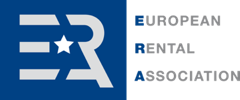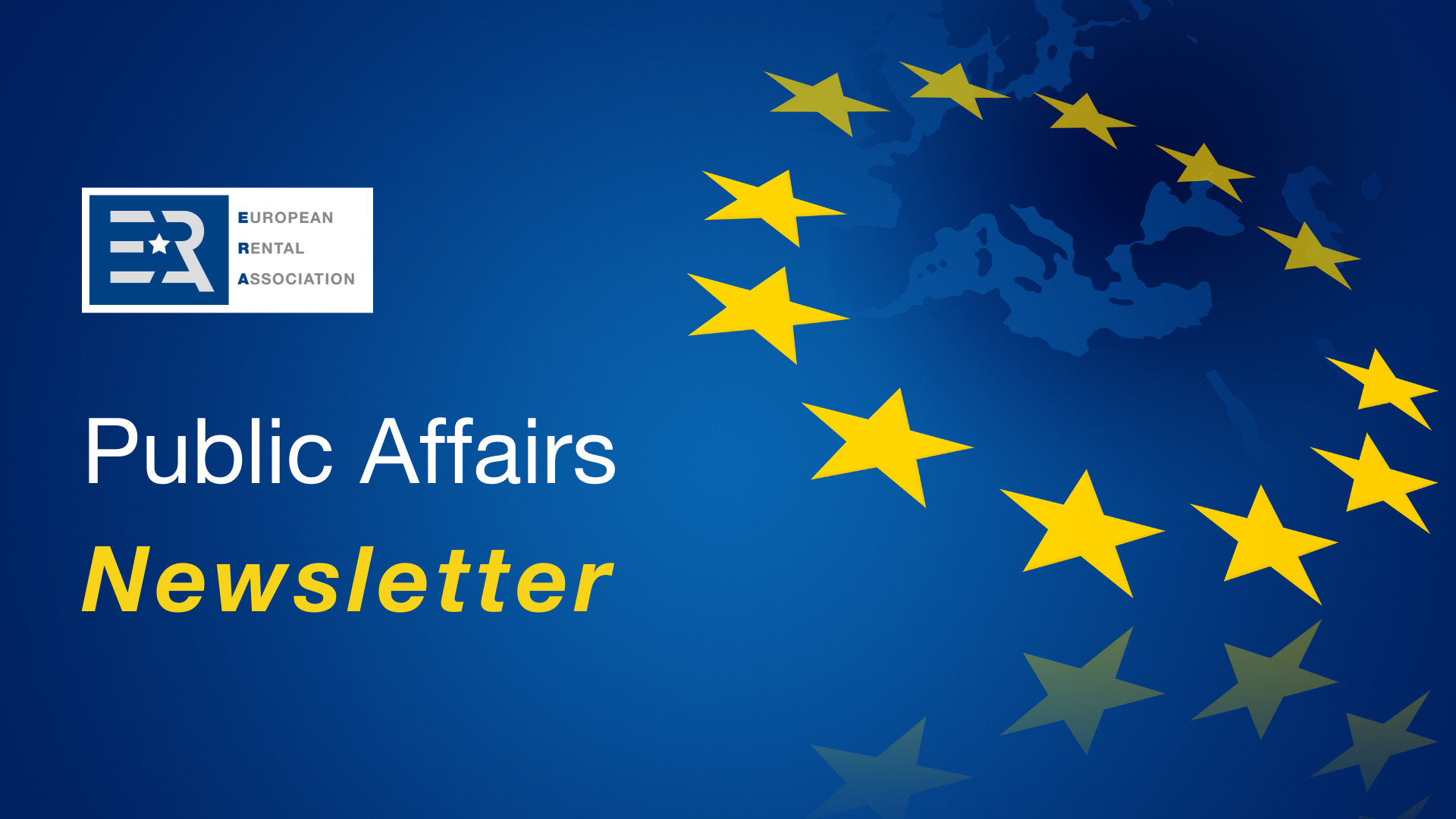
This edition of ERA Public Affairs newsletter covers the following topics:
If you have comments or questions, do not hesitate to contact us at [email protected].
Regulation on non-road mobile machinery circulating on public roads
On 30 March 2023, the European Commission published a proposal for a regulation on the approval and market surveillance of non-road mobile machinery (NRMM) that circulates on public roads. The proposal aims to strengthen the internal market of the EU by establishing harmonised standards for the approval of NRMM and for safety rules for their circulation on roads. It will do so by laying down the technical requirements for the road safety of NRMM, which will replace different regulatory regimes in the EU Member States.
ERA has been involved in preparatory consultations with the European Commission on the drafting of the regulation and welcomes that the Commission has finally tabled the proposal.
In its proposal, the Commission claims that, because of the harmonised and simplified type-approval policy for road circulation of NRMM, rental companies and other end-users of machinery will i) benefit from a reduction by a fifth of the compliance costs; ii) use and re-sell machinery across intra-EU borders more easily; iii) have more choice of non-road mobile machinery; and iv) have access to more innovative designs. The estimated savings from the regulation for rental companies and other end users could reach EUR 344 million over 10 years.
The regulation will first need to be agreed by the European Parliament and the Members States in the Council of the EU. It is proposed to apply 3 years after the date of entry into force.
 Corporate Sustainability Reporting
Corporate Sustainability Reporting
The EU has been strengthening its legal framework on corporate sustainable governance, for example, by creating the Corporate Sustainability Reporting Directive (CSRD) and, more recently, the proposal for a Corporate Sustainability Due Diligence Directive (CSDDD). This way, the EU aims to ensure that businesses consider the environmental and social impact of their business practices. Among other things, the framework requires businesses to report on sustainability topics, such as greenhouse gas emissions and human rights, across the different stages of their supply chain, as well as outline their sustainability strategy, policies and procedures in annual reports. Additionally, the EU is working to establish a standard set of rules for sustainable finance, which would promote green investments and discourage investments in unsustainable practices.
ERA recently participated in a meeting of a European Parliament Intergroup on the competitiveness of industry, where the European Commission presented an update on these initiatives.
The reporting requirements under CSRD will affect listed companies, both large and SMEs. However, for SMEs there is work underway for a simplified standard, which could be adopted in 2024. For non-listed SMEs, the Commission will prepare a voluntary standard, which will include only 17 data fields to fill. Reporting under this simplified voluntary standard will protect non-listed SMEs against excessive reporting requirements from customers (which could be large companies having to report in detail about their supply chain).
To centralise the data for corporate sustainability reporting, the EU is preparing a platform called European Single Access Point (ESAP). Companies will be required to upload their information onto this platform as of 2026. The Regulation to establish ESAP is currently under legislative negotiations.
To help rental companies with various sustainability requirements, legislative and non-legislative, ERA is preparing a guidance document providing an overview and practical help to take the first steps. The guidance will specifically address small and medium size rental companies, but could be used by large rental companies as well.
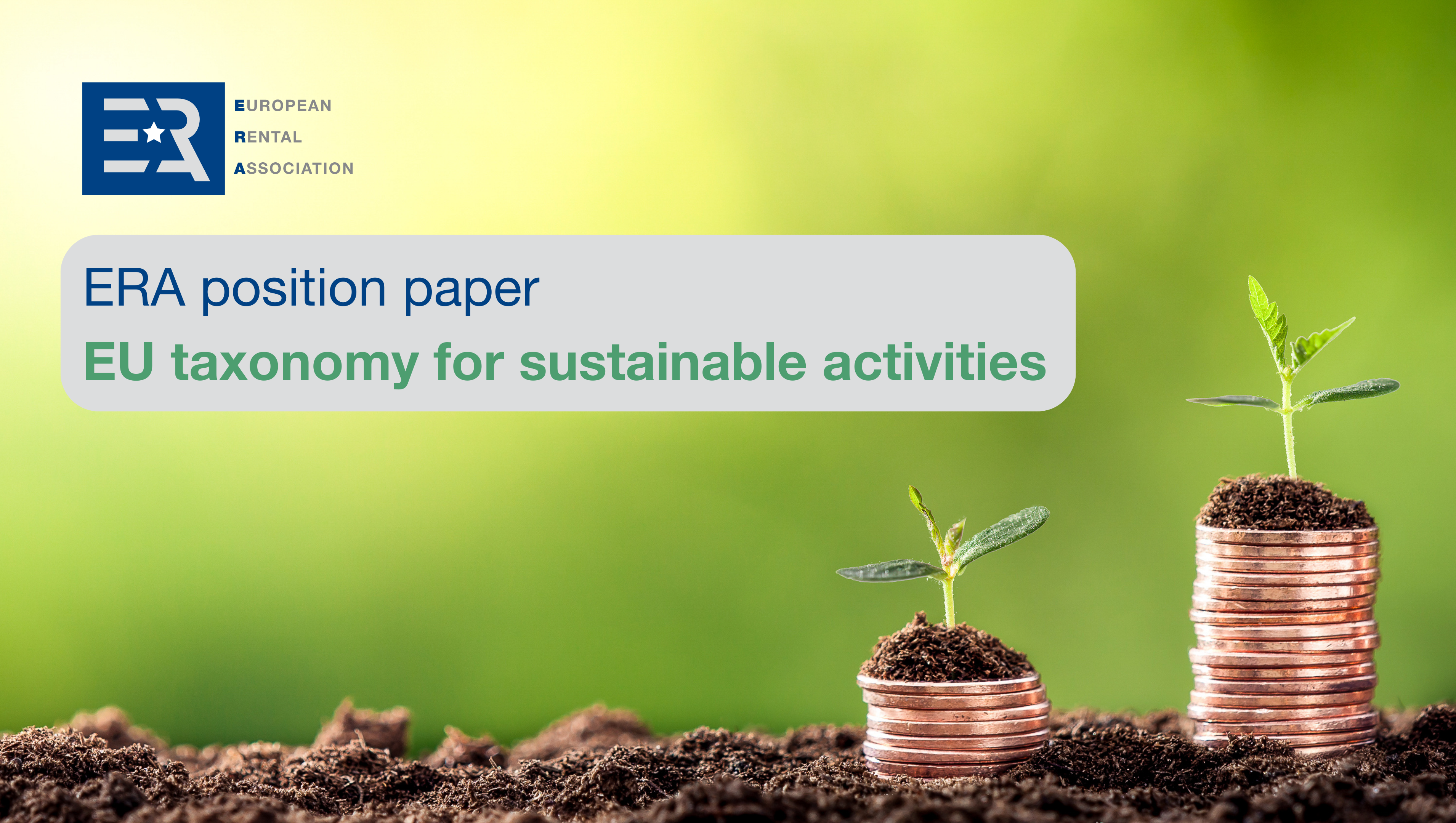 EU Taxonomy for Sustainable Activities
EU Taxonomy for Sustainable Activities
On 5 April, the European Commission launched a consultation on a draft delegated regulation (the Taxonomy Environmental Delegated Act) with technical screening criteria for economic activities making a substantial contribution to the four remaining environmental objectives under the Taxonomy Regulation.
ERA has submitted its comments on the proposal using a previously published position paper on the topic. In its submission, ERA reitirated its position on earlier drafts of the technical screening criteria, which is that rental as a business model needs to be included in the broadest possible way in the EU Taxonomy to fully realise its potential for the transition to a circular economy.
The Commission will need to adopt the final delegated regulation before the end of 2023 as it should apply from 1 January 2024.
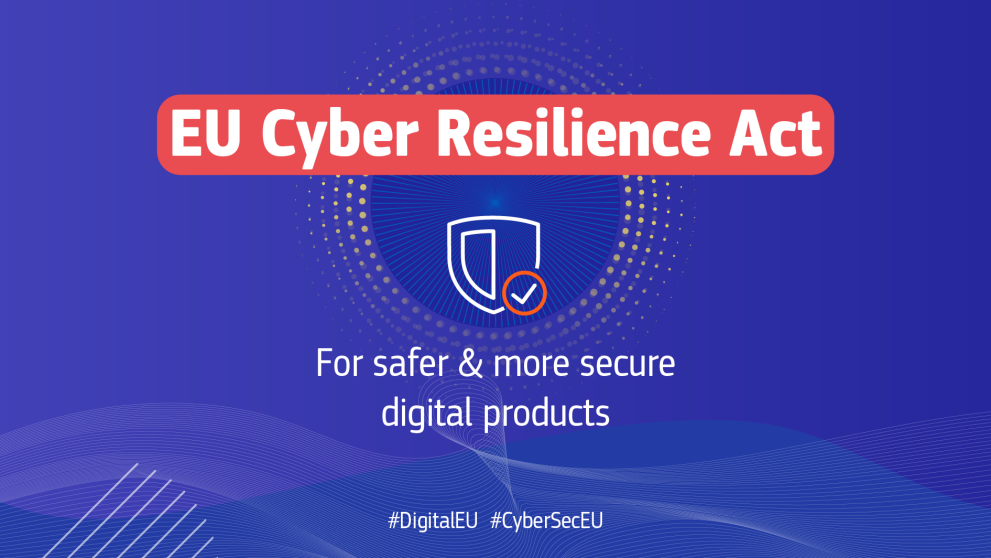 Cyber Resilience Act
Cyber Resilience Act
In September 2022, the European Commission presented its proposal for a European Cyber Resilience Act (CRA). This proposed Regulation lays down essential cybersecurity requirements for every connected device and almost every piece of software distributed in Europe to face today’s diverse and sophisticated cyber-attacks. The CRA aims to facilitate the development of secure digital products with fewer vulnerabilities and to allow users to consider cybersecurity when selecting and using the products.
Concretely, the CRA ensures that manufacturers improve the security of products with digital elements from the design and development phase onwards and throughout the whole life cycle, as well as increase the transparency of cybersecurity practices and properties of products. The CRA will ensure a single and coherent cybersecurity framework, facilitating compliance for hardware and software producers and enabling businesses and consumers to use products with digital elements securely. Within the CRA, rental companies would fall under the category of distributors. It creates the following obligation for distributors:
-
- When making a digital product available, distributors must verify that it meets the essential requirements, including CE marking, and inform the manufacturer of any identified vulnerabilities;
- If a product poses a significant cybersecurity risk, the distributor must immediately inform the manufacturer and relevant national authorities and cooperate with them to eliminate the risk;
- Distributors must provide all necessary information and documentation to demonstrate conformity with regulations and inform users if the manufacturer is unable to comply.
CECE (the machinery manufacturers´ federation) published a position paper that welcomed the CRA and stressed its commitment to cybersecurity. However, CECE has concerns about the current scope and timeline of the proposal. CECE believes that the scope should be narrowed down to only apply to connected digital products that communicate data directly or indirectly via a publicly available electronic communications service. Additionally, CECE believes that the transition period after entry into force should be extended from two to five years to give manufacturers sufficient time to adjust and comply.
The CRA will complement the existing EU legislative framework, which includes the 2016 Directive on the Security of Network and Information Systems (NIS Directive) and the 2019 Cybersecurity Act, as well as the Directive on measures for a high common level of cybersecurity across the Union (NIS 2), which entered into force last January. The legislative negotiations for the CRA are expected to conclude by the end of 2023.
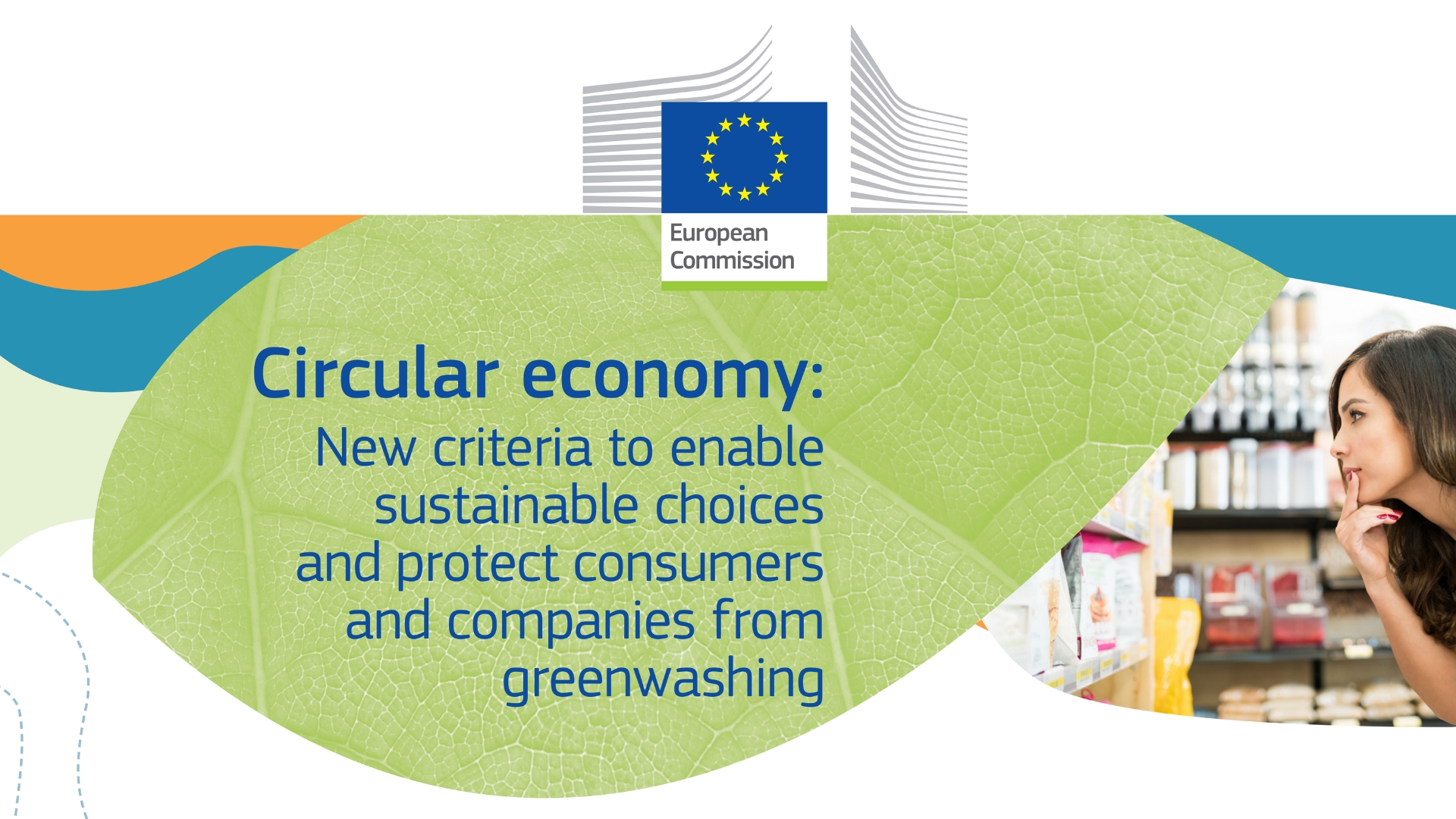 Green Claims Directive
Green Claims Directive
In March 2023, the European Commission published its proposal for a Directive on substantiation and communication of explicit environmental claims (Green Claims Directive). ‘Greenwashing,’ or the act of misleading consumers regarding the environmental benefits of a product or service or the environmental practices of a business, has become a severe problem in the field of both environmental and consumer protection. This Directive aims to prevent companies from making misleading and unsubstantiated environmental claims about their products and services and stop the practice of greenwashing.
The Green Claims Directive ensures that environmental labels and claims are truthful, accurate and credible, allowing consumers to make better-informed decisions and boosting the competitiveness of businesses striving for the environmental sustainability of their products and activities. It will set requirements for claims and labels to be substantiated and checked by an independent and accredited verifier. It will also impose rules for the governance of existing labeling schemes to ensure these are solid, transparent, and reliable.
The proposal targets explicit claims that are voluntary, covering the environmental impacts, aspects or performance of a product or trader, and are currently not covered by other EU rules. It will also allow consumers to take legal action against companies that make unsubstantiated claims.
Concretely, the proposal will oblige companies to provide information about the product or service that they make explicit environmental claims about, either physically or through a web link or QR code, as well as thoroughly assess their claims. The minimum required information includes the environmental aspects, impacts or performance covered by the claim, the relevant European standards, an explanation of how improvements are achieved, information on the assessment of the claim and information on the conformity regarding the substantiating of the claim.
The proposal is still in its early stages. Once adopted, it will have to be transposed by Member States into national law within 24 months of the entry into force of the directive.
 Right to Repair
Right to Repair
The proposal for a Directive on common rules promoting the repair of goods was tabled in March 2023. The proposal introduces a new ‘right to repair’ for consumers, both within and beyond the legal guarantee.
With the new ‘right to repair’, the proposal wants to ensure that more products are repaired within the legal guarantee and that consumers have easier and cheaper options to have technically reparable products repaired when the legal guarantee has expired. Within the legal guarantee, sellers would be required to offer repair, except when it is more expensive than replacement.
The draft Directive also introduces an obligation for producers of goods to repair defects outside the liability of the seller upon the request of consumers and against a price.
The proposal will further connect consumers with sellers and repairers through an online matchmaking platform where consumers can find the best-fitting repair services. Furthermore, a European quality standard for repair services will be included, helping consumers identify repairers who commit to a higher quality of reparation standards.
The draft Directive specifies that it shall apply only to sales contracts between a consumer and a seller (B2C) and to the repair of consumer goods purchased by consumers in the event of a defect of the goods that occurs or becomes apparent outside the liability of the seller. This means that in principle this directive will not directly affect most commercial activities of equipment rental companies.
